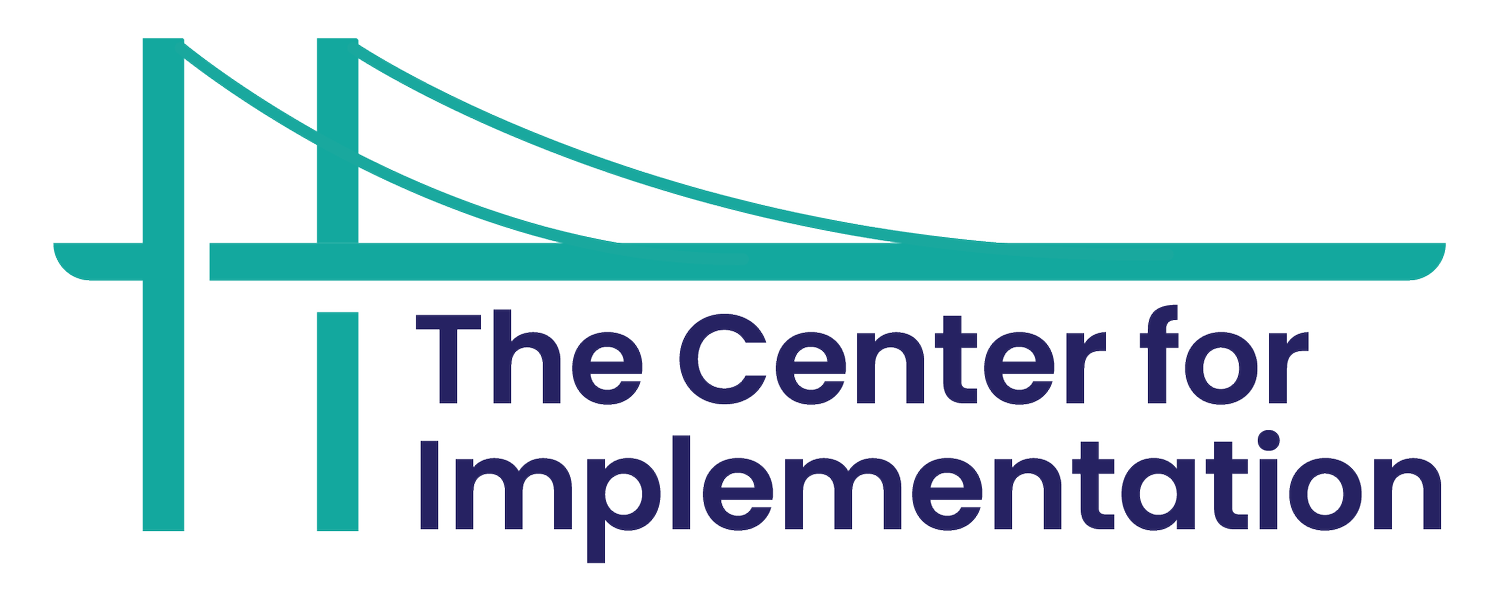
What we do
The Center for Implementation (TCI) was founded in 2018 and has been growing rapidly ever since. This expansion is driven by our international reputation for synthesizing and translating complex concepts into actionable processes.
We train, support, and empower individuals and organizations in applying theory and evidence-informed change methods to improve outcomes.
When people have something they want to implement, we help them think about and plan for the “how-to” — things like how to overcome barriers to change, how to assess readiness and context, how to plan for adaptations, and how to sustain or expand their efforts.
Our vision
is to see millions of changemakers worldwide actively applying best practices in implementation science to their initiatives.
Our mission
and moral imperative are to train, support, and empower professionals in using evidence-informed approaches to maximize their impact.
We’ve supported 200+ initiatives and trained thousands of changemakers worldwide.
Our approach
TCI prioritizes an entrepreneurial and values-based approach that embraces equity, empathy, creativity, and collaboration.
As a social enterprise, our work focuses on supporting individuals and organizations that are implementing evidence and programs to address social issues, create positive change, and achieve global impact.
We do this by:
Identifying and responding to needs and gaps
Ensuring our guidance is informed by best available evidence
Prioritizing access and equity over revenue
Being empathetic and supportive
Encouraging creative thinking and innovation
Designing and delivering content that is relevant and practical
What is implementation science?
Implementation science, simply put, is the scientific study of how to move ideas and innovations into action. It’s the research behind how best to implement change.
So what does that look like in practice?
Think about any time you have tried to implement change (for example, a program, a policy, a practice, a behavior). How often have you tried to communicate a change or educate people about a change — only to run into obstacles that you weren’t sure how to get around?
People face personal, organizational, and system level barriers that make it difficult to change. Plus, most people planning for implementation aren’t well equipped to know how to address these barriers.
That’s where we come in. We combine implementation science with other fields (for example, systems thinking, quality improvement, social sciences, business) to provide evidence-informed guidance and recommendations.
We often refer to ourselves as being “topic agnostic” because we train people across multiple fields and disciplines (e.g., health, education, social services, justice, public and mental health) to optimize how they lead and support change. We also work collaboratively with organizations to facilitate the process of planning for implementation, scale, and sustainability.



